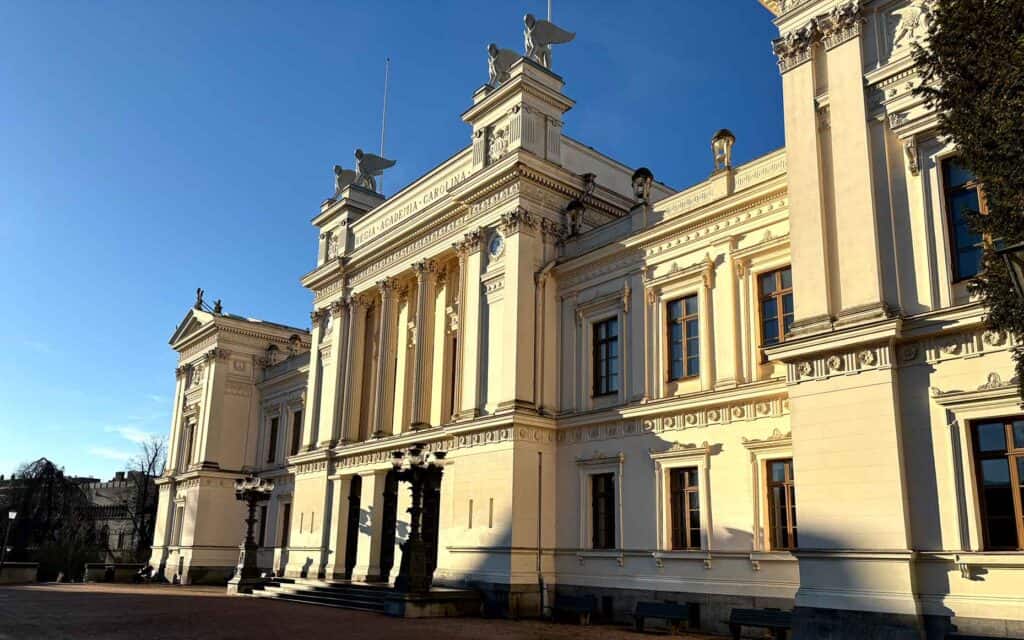SULF would like to abolish scholarships as a means of support for postdocs, and for the money to be used to employ them instead. The main reason for this is that they would then have a right to sickness benefit, parental benefit, a pension and unemployment insurance.
“It is distressing to see that such a large proportion of postdocs are on scholarships,” says Robert Andersson, SULF’s Head of Negotiations.

Since scholarship holders have fewer rights, the trade unions are less able to provide them with support. Nevertheless, SULF offers advice and helps scholarship holders when problems arise, such as those associated with population registration, right of residence, residence permits and insurance protection.
“We are dealing with a case now in which we’re quarrelling with the Swedish Social Insurance Agency (Försäkringskassan) which claims that one particular postdoc on a scholarship is a student and should not be awarded any benefits at all,” says Robert Andersson. “This is very much based on the fact that the individual in question has used terms such as ‘postdoctoral studies’, which the authorities find misleading.”
This is connected to a more profound problem that he points out: that having postdocs on scholarships serves as an indication that the research they are carrying out is not a professional form of work.
Robert Andersson doesn’t buy the argument that scholarships make it possible to have more postdocs and to do more research.
“Should we then also have police officers or professors on scholarships in order to be able to afford more of them?”
For the employed postdocs, SULF does not wish to see various kinds of short-term contracts being run on from each other. But the postdoc contract regulated by the collective bargaining agreement is just a two-year agreement, and within most disciplines, it takes a greater number of years than that to quality. So what are the options?
“We need to review the contract itself,” says Robert Andersson. “One possible positive development might be for the postdoc contract to be more flexible within a certain framework, but that it may not be combined with a general fixed-term employment contract. That system would be more solid.”
Most actors seem to agree that seeking a postdoctoral position prior to defending a thesis should be permitted, provided that this process is completed before the start of the employment term. Doing so would prevent the loss of the best candidates in competing with other countries.
Why can’t the various parties simply agree on this matter then?
“The matter should be straightforward, but still it needs to be discussed with all parties. But there is nothing in the contract that prohibits this, so if SULF is ever asked about it, we say that the contract can already be interpreted in this way.
The time limit for applying for an associate senior lecturer position is another controversial issue. In Sweden it is five years, but the Young Academy of Sweden and the National Junior Faculty of Sweden would like to extend it to seven years. Their argument is that many postdocs would not have time to qualify in five years.
“SULF’s board have not discussed the matter since backing the enquiry’s suggestion of five years, which in turn was based on the idea of not having to wait long for a permanent position,” says Robert Andersson. “Should this period be extended to seven years, some would doubtless say that it takes nine years to qualify. At the end of the day, you still have to hire people, so it all depends where you set the bar with respect to qualifying.”
Three opinions
How can postdocs’ situation be improved?

“First and foremost, postdocs need to be aware of the existence of organisations that can provide them with support. We are working to ensure that contracts drawn up by the university for postdocs includes information about their rights and obligations, and that UUPA is mentioned. We are also working on gaining representation within decision-making bodies. Certain problems are apparent nationwide, and that is why we need to pursue issues together within the Swedish National Postdoc Association. We are also collaborating with the National Junior Faculty.”

“Clarify career paths, improve the terms and conditions set for younger researchers through broad, transparent recruitment processes. Good networks and mentorship can be useful when planning a career. We have launched a mentorship programme, and have forums that enable networking with established researchers. We have an adjunct position at faculty meetings and on various committees, which allows us to advance young researchers’ voices. We offer suggestions on improvements through our active engagement. The Future Faculty is part of the National Junior Faculty, and we regard the fact that we include both postdocs and young research-group leaders as a great strength.”

“Postdocs working in disciplines that are associated with a more structured and standardised career path tend to handle the insecurity better because they know what awaits them. In academia, we need to focus more on qualitative results so that we dare to become engaged in the work we believe in – not simply the work that delivers the quickest quantitative results. I have been amazed by the number of people who reject the path that is the most strategically sound career-wise in favour of remaining true to their values and doing what they believe is right for the profession as a whole. This is one way of handling the situation, and it’s also a form of soft revolt.















